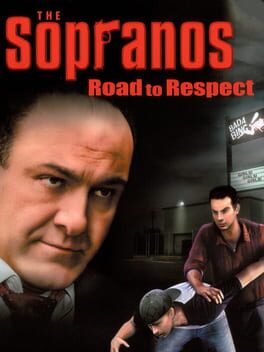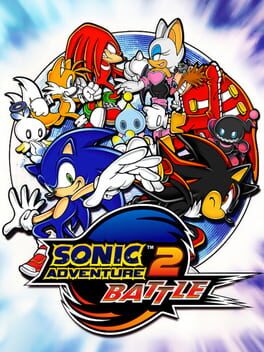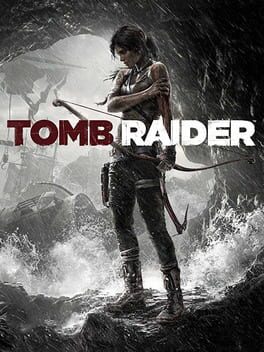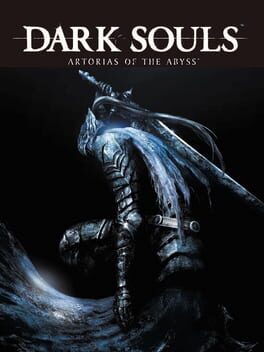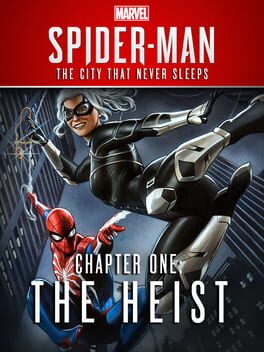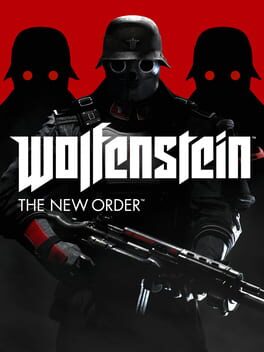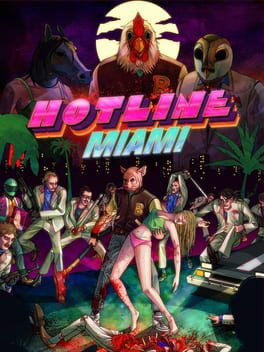edgharris
41 reviews liked by edgharris
Tomb Raider
2013
I've got a thousand problems with this game, but I can't bring myself to give it anything but 5 stars. it just does stuff that no other game does, and the best bits of it are so easy to love. I am still surprised by this, but Arthur Morgan is my favorite character in any video game. brilliant writing and tremendous scope.
NieR: Automata
2017
Hotline Miami
2012
A story of love and revenge told through ellipsis. A tale of violence reduced to its visceral fundamentals. Abstracted until the literal no longer matters and the work can indulge in the essential symbols and aesthetics.
In my opinion, it outdoes other games released at the time that tried to be self-critical of the mechanics being designed for violence and the implications of such. That because of Hotline Miami’s emphasis less on the shaming of the player, and more on the ways we distance ourselves from our actions in virtual spaces with context and the particular abstraction inherent to the videogame look.
Pushing us out of the comfort that virtuality gives us by constantly involving us, asking us question and calling attention to what we exert. Every time we kill dozens of enemies, having the need to contemplate the destructed bodies of every one of them on our way back to the place that we started in.
Video-game avatars as masks (like those Jacket wears before committing atrocities). Figures we control that serve to express ourselves in a space. Even when the only way that we can see of achieving that expression in the digital being through violent acts. All a performativity that the creators allow themselves to break down. Pointing at its farce and putting it apart so they can directly involve us in a conversation about what makes us wish for enacting these stories.
We might want to moralize our habits of playing through intellectualizing. The actions as means for encountering meaning of any kind, especially if it is irony. That it is okay that I exert violence in a virtual space because the game is making a critique of violence (the military FPS being the quintessential example of this falsity).
However, any of that would be nothing more than dishonest. We are not given a reason by the game of what we did. Nothing that rationalizes our journey, because we were not looking for anything in the first place. We just wanted to indulge ourselves. It is as intellectually unrewarding as that.
In so, the game not only explores exerted virtual violence and our relation to it as perpetuators, but also the futility of our agency in any form of system. We are taking from place to place by the designers to execute a very strict set of actions without possibility for more. We might like to indulge in the power fantasy, but in the end, we are being used by the game. We don’t have a choice over where we will go because it is all designed a priori. Anything we do having been not only considered but also planned. And any illusion of choice is all within the restrictions that the game puts us in. So we can do what they want us to do.
An anxiety that gains a political dimension with how it parallels how Jacket and Biker are used by a group with its own agenda, as if they were nothing more than tools. An agenda that they are not told about. Just doing it because it is what they have been ordered to. If anything, this game shows an understanding of its particular source (Drive, which itself was inspired by Le Samourai) that goes beyond the mere appropriation. That these symbols all served for stories about lonely men defined purely by their labor that are finally confronted with the consequences of their involvement, being left with nothing in the end. Although to this, Hotline Miami adds a viscerality in the trauma of normalizing violence that fits with its conceptual interests.
The only real shame is how this effect is kind of undermined by how there is, in the end, a rational explanation that gives meaning to all of us actions. A revelation that enhances the political side of the story in its usage of cold war confrontations and PTSD. However, in the process also takes away from the abstraction that is part of why this works so well on an aesthetic level. And so it kind of falls in what it tries to critique by giving us the comfort of the reason to justify what we did. Still, the experience of playing the game and getting these conflicted emotions by the situation that we are put in is something that cannot be taken away even by the worst twist (it does make it easier to forgive that when it's a secret ending that you need to find collectibles for, rather than being what you get when you only complete the story). More so with design this polish and an understanding of video-game language this intense.
I am very much sorry for bringing my big pretensiousness to video games too. It's what being bored and not being able to sleep does lmao.
In my opinion, it outdoes other games released at the time that tried to be self-critical of the mechanics being designed for violence and the implications of such. That because of Hotline Miami’s emphasis less on the shaming of the player, and more on the ways we distance ourselves from our actions in virtual spaces with context and the particular abstraction inherent to the videogame look.
Pushing us out of the comfort that virtuality gives us by constantly involving us, asking us question and calling attention to what we exert. Every time we kill dozens of enemies, having the need to contemplate the destructed bodies of every one of them on our way back to the place that we started in.
Video-game avatars as masks (like those Jacket wears before committing atrocities). Figures we control that serve to express ourselves in a space. Even when the only way that we can see of achieving that expression in the digital being through violent acts. All a performativity that the creators allow themselves to break down. Pointing at its farce and putting it apart so they can directly involve us in a conversation about what makes us wish for enacting these stories.
We might want to moralize our habits of playing through intellectualizing. The actions as means for encountering meaning of any kind, especially if it is irony. That it is okay that I exert violence in a virtual space because the game is making a critique of violence (the military FPS being the quintessential example of this falsity).
However, any of that would be nothing more than dishonest. We are not given a reason by the game of what we did. Nothing that rationalizes our journey, because we were not looking for anything in the first place. We just wanted to indulge ourselves. It is as intellectually unrewarding as that.
In so, the game not only explores exerted virtual violence and our relation to it as perpetuators, but also the futility of our agency in any form of system. We are taking from place to place by the designers to execute a very strict set of actions without possibility for more. We might like to indulge in the power fantasy, but in the end, we are being used by the game. We don’t have a choice over where we will go because it is all designed a priori. Anything we do having been not only considered but also planned. And any illusion of choice is all within the restrictions that the game puts us in. So we can do what they want us to do.
An anxiety that gains a political dimension with how it parallels how Jacket and Biker are used by a group with its own agenda, as if they were nothing more than tools. An agenda that they are not told about. Just doing it because it is what they have been ordered to. If anything, this game shows an understanding of its particular source (Drive, which itself was inspired by Le Samourai) that goes beyond the mere appropriation. That these symbols all served for stories about lonely men defined purely by their labor that are finally confronted with the consequences of their involvement, being left with nothing in the end. Although to this, Hotline Miami adds a viscerality in the trauma of normalizing violence that fits with its conceptual interests.
The only real shame is how this effect is kind of undermined by how there is, in the end, a rational explanation that gives meaning to all of us actions. A revelation that enhances the political side of the story in its usage of cold war confrontations and PTSD. However, in the process also takes away from the abstraction that is part of why this works so well on an aesthetic level. And so it kind of falls in what it tries to critique by giving us the comfort of the reason to justify what we did. Still, the experience of playing the game and getting these conflicted emotions by the situation that we are put in is something that cannot be taken away even by the worst twist (it does make it easier to forgive that when it's a secret ending that you need to find collectibles for, rather than being what you get when you only complete the story). More so with design this polish and an understanding of video-game language this intense.
I am very much sorry for bringing my big pretensiousness to video games too. It's what being bored and not being able to sleep does lmao.
